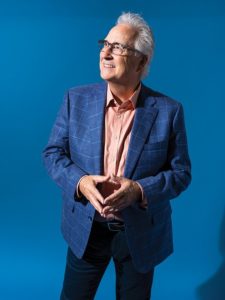 Bio: Steve Fife likes to exceed expectations. And that might be putting it mildly. Fife brings over three decades and a lot of financial leadership experience to LifeVantage where he uses big-picture strategic thinking and an in-the-weeds work ethic to create a healthy financial organization by focusing on delivering a growth strategy while creating value for customers, shareholders, and employees.
Bio: Steve Fife likes to exceed expectations. And that might be putting it mildly. Fife brings over three decades and a lot of financial leadership experience to LifeVantage where he uses big-picture strategic thinking and an in-the-weeds work ethic to create a healthy financial organization by focusing on delivering a growth strategy while creating value for customers, shareholders, and employees.
Fife is passionate about bringing affordable, science-based products to market as well as seeing companies reach their potential. Before joining LifeVantage, he served as Chief Financial Officer and Chief Operating Officer at Evidera, Inc., a private equity-sponsored professional services firm that provides outcomes research, market access, data analytics and epidemiology services to pharmaceutical companies. Prior to that, he worked as Chief Financial Officer for several publicly traded companies, including Active Power Inc. and LECG. In addition, he served in several senior financial roles for Gilead Sciences, Amkor Technologies and JDS Uniphase. In other words, he’s been doing this for a while, and he enjoys it. Fife is a Certified Public Accountant (inactive) in the State of California and holds a Bachelor of Science degree in Accounting from Brigham Young University.
This content is restricted to site members. If you are an existing user, please log in. New users may register below.


